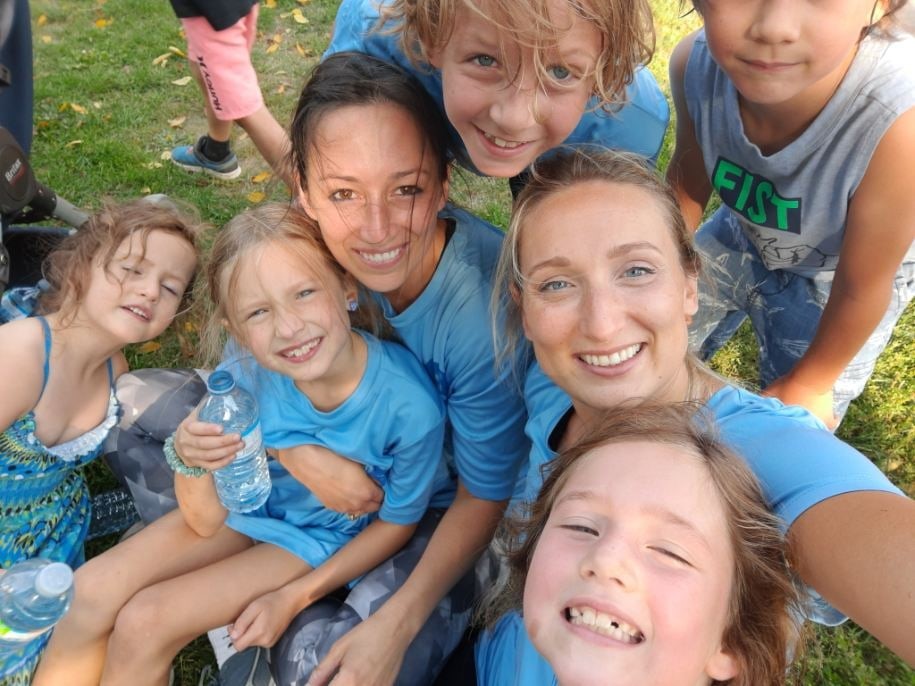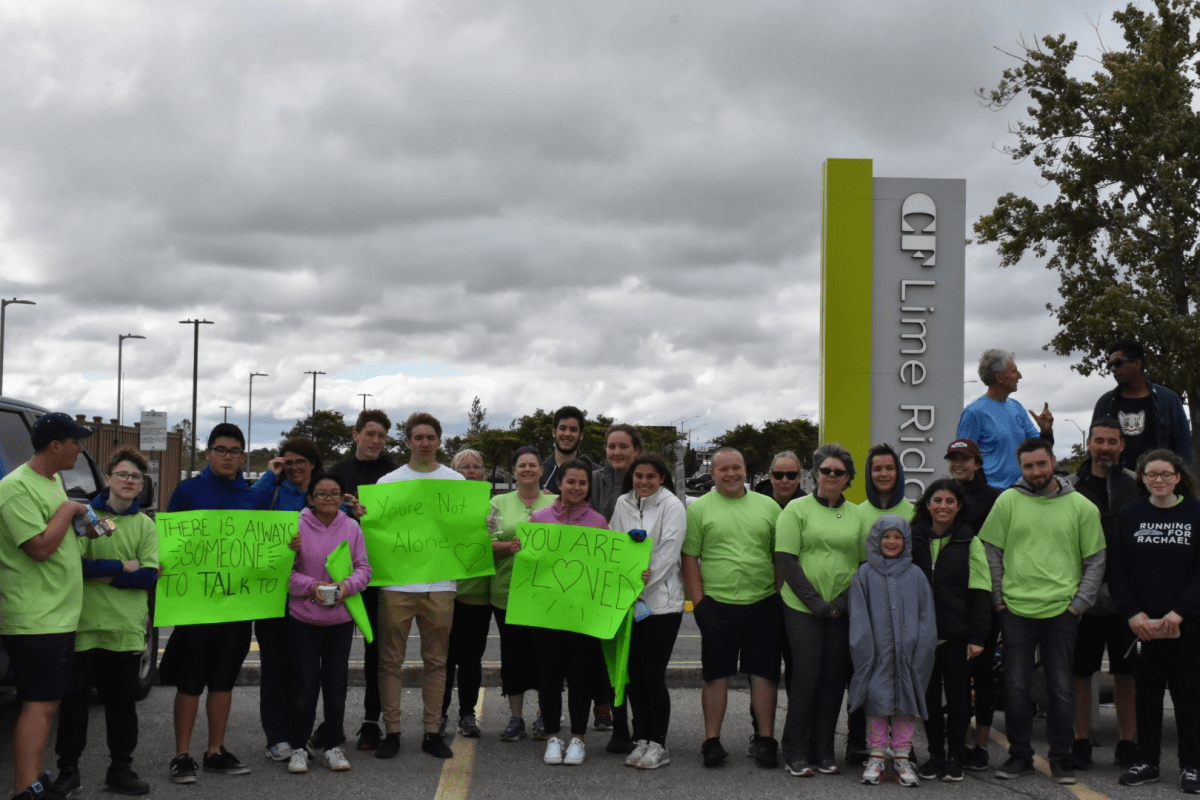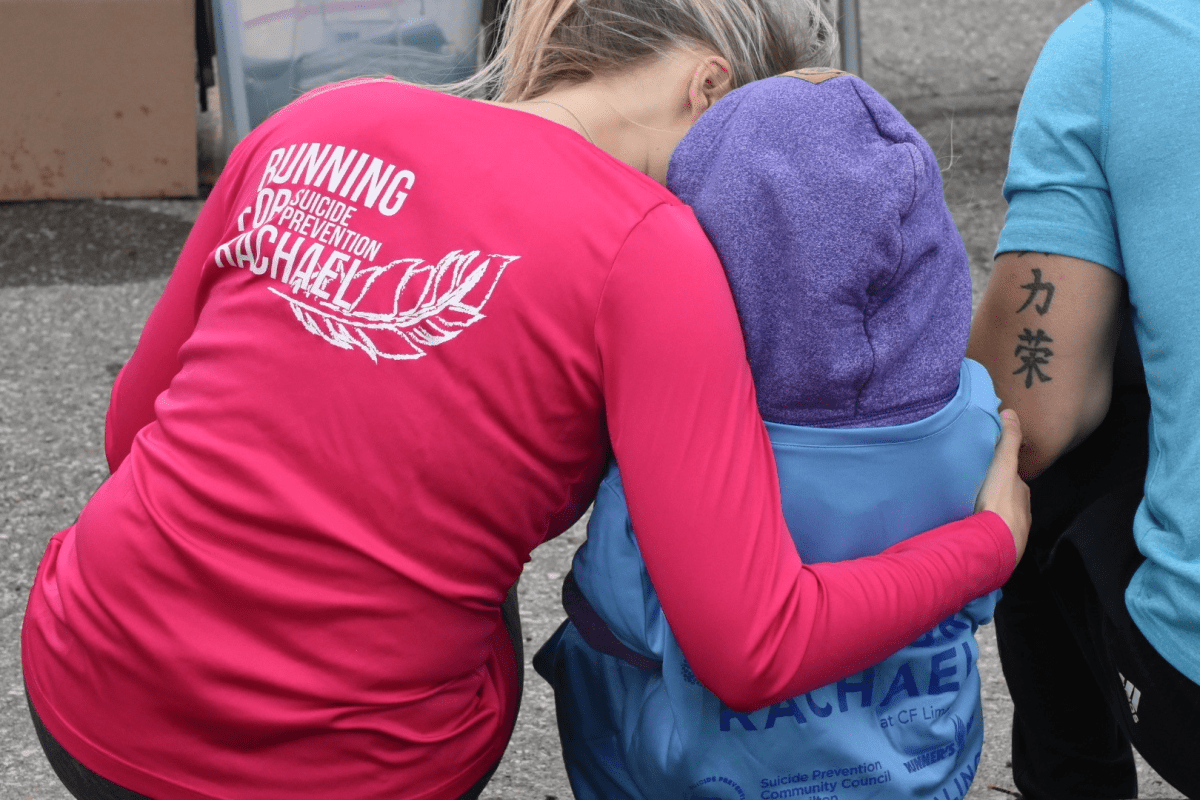Suicide, thoughts of suicide and suicide-related behaviours impact people of all ages and backgrounds in Canada. Yet suicide is preventable through awareness, training and education, and healthy help-seeking.

That’s where the Suicide Prevention Community Council of Hamilton (SPCCH) is making a difference. The non-profit organization consists of volunteers and agency representatives who have worked for the past 42 years providing help and hope for those touched by the issue of suicide.
In partnership with the SPCCH, we look at some of its initiatives and why the organization’s work is crucial in the Hamilton community ahead of World Suicide Prevention Day on September 10.
READ MORE: Suicidal thoughts significantly higher among Canadians during COVID-19: StatCan
Why talking about suicide is important
Speaking openly about suicide and suicide prevention is essential so that people with thoughts of suicide feel comfortable seeking help, says Dr. Jennifer Brasch, an associate professor in the department of psychiatry and behavioural neurosciences at McMaster University and the lead, addiction psychiatry, at St Joseph’s Healthcare in Hamilton.
“It’s also important that health-care professionals become more comfortable asking about suicidal thoughts,” she explains. “There’s still a lot of stigma around suicide, and it appears taboo to talk about suicide or suicidal thoughts. Things are changing now, and one of the ways to make it easier to talk about suicide is to have events that acknowledge that.”
The theme of this year’s World Suicide Prevention Day is creating hope through action, which also acknowledges that talking openly about suicide is key.
The day before, on September 9, the SPCCH is teaming with St Joseph’s Healthcare for a butterfly release ceremony with patients, staff and community agencies to raise awareness of the suicide prevention work being done in Hamilton. The public is invited to participate in the ceremony via YouTube.
“We’re remembering those who we’ve lost to suicide and focusing on the supports that are in place,” explains SPCCH chair Sid Stacey. “And to celebrate the community agencies and primary care and hospitals that are all doing important work in this area.”
READ MORE: MPs push for suicide hotline as COVID-19 continues to take mental toll

Get daily National news
How Running for Rachael supports suicide prevention work
On September 25, the SPCCH is holding its 10th annual CF Lime Ridge Running for Rachael event, a 5k walk or run to promote suicide prevention work in Hamilton, increase community awareness, and raise funds for local programs and initiatives.
One of those initiatives is LivingWorks Start, an online suicide prevention training program to help recognize when someone is having thoughts of suicide and learn how to take meaningful action to keep them safe.
Funds raised by Running for Rachael will also go to local support groups for those affected by suicide and the Be Safe app for Hamilton, which is free to download and now contains essential mental health support information specifically for the Hamilton community.
“I recommend the app to my patients because for some people when the thoughts of suicide come on, they feel helpless, they don’t feel as though they can do anything,” Brasch says. “A safety plan is essentially embedded in the Be Safe app and helps people see that they can overcome the thoughts. They can dispel the thoughts and they can change them. They do not have to let them wash over them and make them feel worse.”
Continuing suicide prevention work in the community
Beyond September, the SPCCH has teamed with the Canadian Mental Health Association (CMHA) Hamilton as early adopters of Roots of Hope, a suicide prevention program developed by the Mental Health Commission of Canada that’s open to communities across the country.
As part of Roots of Hope, the SPCCH and CMHA Hamilton will focus on five pillar projects in Hamilton: training and education, means safety, research initiatives, building bridges for transitional youth, and life promotion.
Brasch says suicide and suicide prevention are becoming easier to talk about and that there’s more support for those affected by suicide. That’s due to ongoing awareness campaigns, funding and community initiatives like Roots of Hope that help people become more resilient and less likely to develop thoughts of suicide.
“You want to stop people from ever reaching that point,” she says. “To do that, people need to grow up and have opportunities to develop connections with their community, family and friends. To feel they have meaningful work and engagement with the community. A lot of grants don’t do that.”
She adds that by targeting those five pillars and specific programs, the SPCCH and CMHA Hamilton are building a healthier community and providing interventions that prevent people from feeling desperate.
If you or someone you know is in crisis and needs help, resources are available.
In case of an emergency, please call 911 for immediate help.
People experiencing a mental health crisis in Hamilton can call the city’s Crisis Outreach and Support Team at 905-972-8338 or Crisis Services Canada at 1-833-456-4566.
For a directory of support services in your area, download the Be Safe App.
To learn more about how to help someone in crisis, email info@spcch.org for information on the LivingWorks Start online suicide prevention training.
To join the World Suicide Prevention Day butterfly release ceremony, visit the St. Joe’s website.
To register or donate to Running for Rachael, visit the event website.
To learn more about suicide prevention, visit the Suicide Prevention Community Council of Hamilton.




